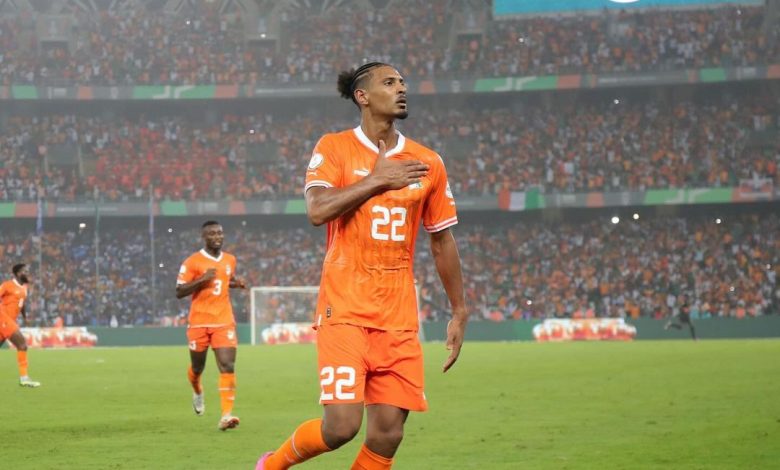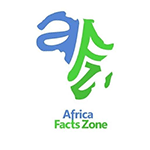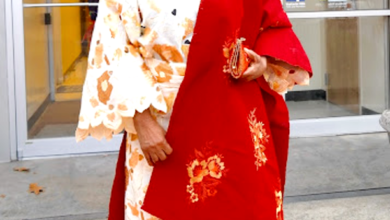Ivory Coast beats Nigeria to win Africa Cup of Nations (AFCON) for the 3rd Time

In a thrilling finale, Sébastien Haller‘s late goal propelled the Ivory Coast to a stunning victory in the Africa Cup of Nations final against Nigeria, securing their third title in the tournament’s history.
Haller’s decisive strike came in the 81st minute, sealing the turnaround after Franck Kessié had earlier drawn the Elephants level in the 62nd minute.
The triumph marked Ivory Coast’s third Africa Cup of Nations title, following their previous victories in 1992 and 2015, both of which were secured via penalty shootouts.
Max Gradel, a veteran midfielder who had been part of the championship-winning team in 2015, expressed profound gratitude for the opportunity to represent his nation, acknowledging the immense joy it brought to Ivorians.
Reflecting on the victory, Gradel emphasized the pride felt by the Ivorian people and the significance of winning the prestigious tournament.
Haller’s pivotal goal not only secured the title for Ivory Coast but also marked a personal triumph for the player, coming just over a year since his return from cancer treatment.
His resilience and determination were evident throughout the tournament, culminating in his crucial contribution to the team’s success.
Nigeria’s captain, William Troost-Ekong, had briefly put his team ahead with a goal in the 38th minute against the run of play. However, Ivory Coast dominated much of the match, with Nigeria only posing a threat in a desperate attempt to equalize after Haller’s decisive strike.
ALSO READ: AFCON Iconic Moments: Legends and Top Scorers of the CAF Africa Cup of Nations
Ivory Coast’s journey to the final was fraught with challenges, including a near-elimination in the group stage and the subsequent dismissal of their coach.
However, the team displayed remarkable resilience, recording comeback wins over formidable opponents in the knockout stage, culminating in their triumphant victory in the final.
The Ivory Coast’s unexpected progression through the tournament captured the imagination of devout Ivorians, who viewed their success as a sign of divine intervention.
Interim coach Emerse Faé, who took over on his 40th birthday, described the tournament as extraordinary, underscoring the team’s remarkable achievement.
Nigeria’s defense, which had been solid throughout the tournament, faltered in the final, conceding as many goals as they had in all their previous matches combined.
Coach José Peseiro had relied on his team’s defensive prowess, aiming for what would have been the Super Eagles’ fourth title.
Acknowledging Ivory Coast’s superiority in the final, Peseiro remarked, “We played a fantastic tournament, but today Côte d’Ivoire was better.”
He attributed the pressure of the occasion as a factor that affected his players, while also praising the composure of the home team.
The decisive moment came when Franck Kessié’s header, from Adingra’s corner, ignited celebrations among the 60,000-strong crowd at the Alassane Ouattara Stadium. Kessié’s gesture of salute towards the fans, clad in orange, epitomized the jubilation that engulfed the stadium.
Despite a small contingent of Nigerian supporters, donned in green and white, attempting to rally behind their team, they struggled to make an impact against the overwhelming fervor of the Ivorian fans.
ALSO READ: Winners of the Africa Cup of Nations from 1957 to 2021 – Egypt and Cameroon Emerge as Top Winners
Sébastien Haller’s winning goal unleashed scenes of jubilation that reverberated not only in Abidjan but throughout the entire nation of 27.5 million people.
The anticipation had been palpable for days, with streets transformed into makeshift viewing areas and fan zones across the city buzzing with excitement ahead of the final showdown.
The buildup to the match caused chaos on the streets, with traffic brought to a standstill for miles around the stadium hours before kickoff.
Street vendors capitalized on the captive audience, offering an array of refreshments, merchandise, and patriotic paraphernalia, creating a vibrant atmosphere.
However, the congestion posed challenges for the Nigerian team’s journey to the stadium. Amid the gridlock, armed soldiers intervened, urging motorists to make way for the team bus and its security detail, emphasizing the significance of the occasion.
As fans abandoned stationary buses to make their way to the match, the spirit of anticipation and excitement prevailed, underscoring the profound passion and unity that football evokes in communities across the region.





